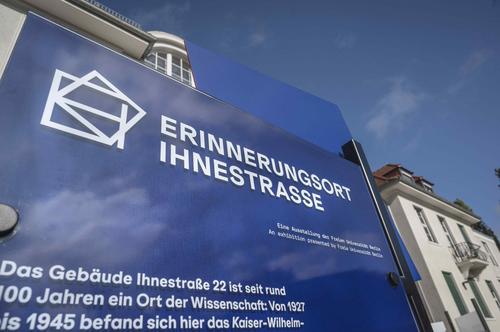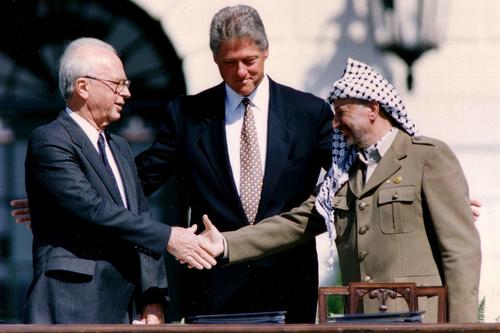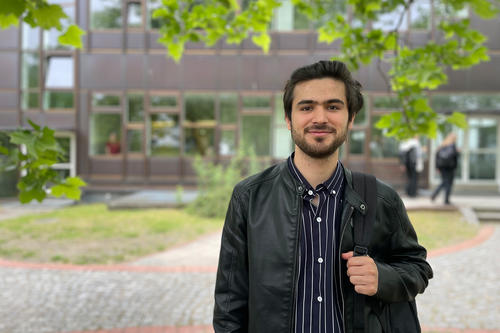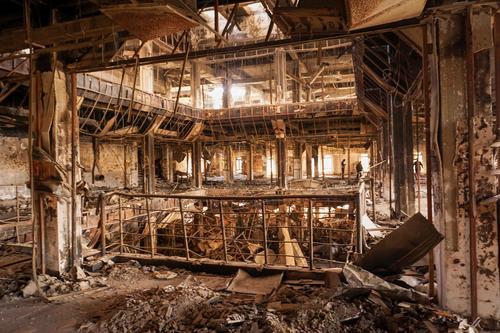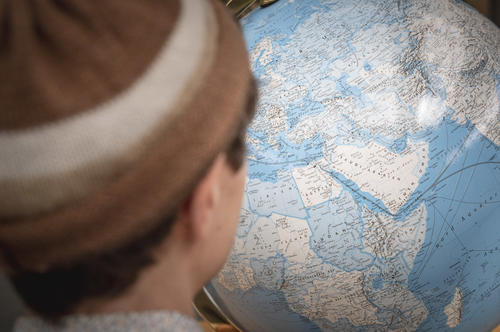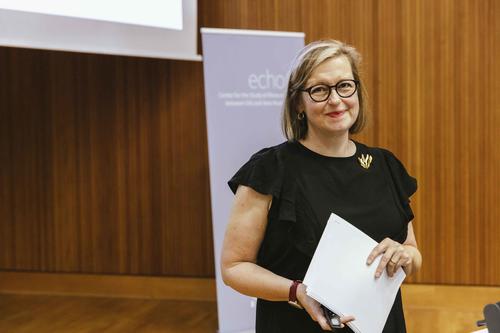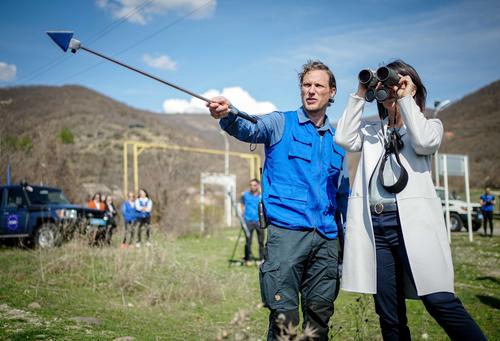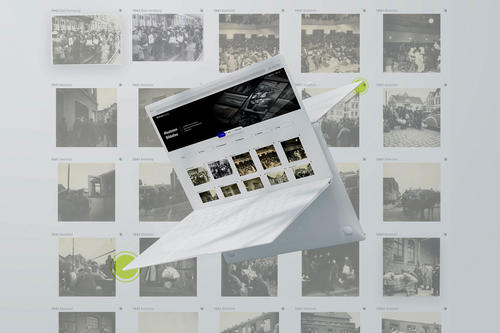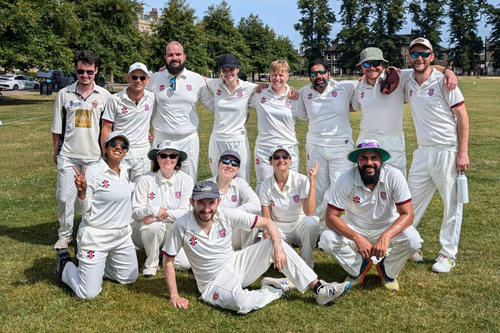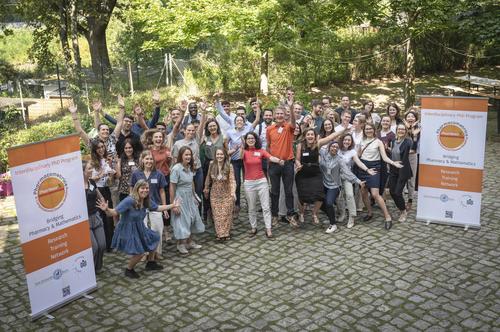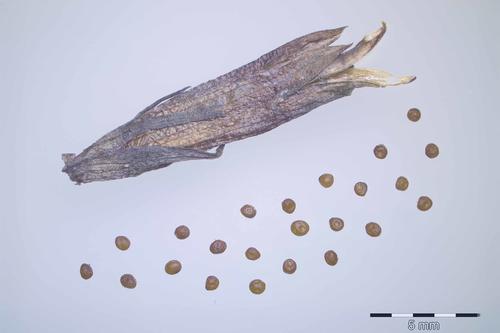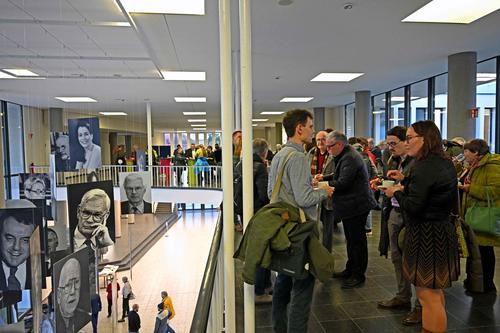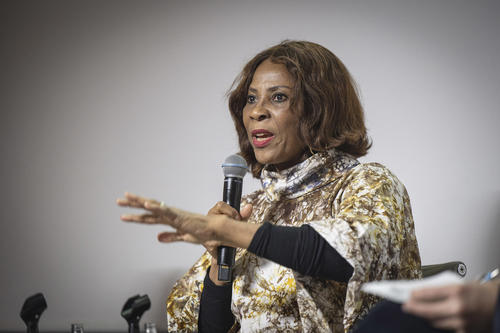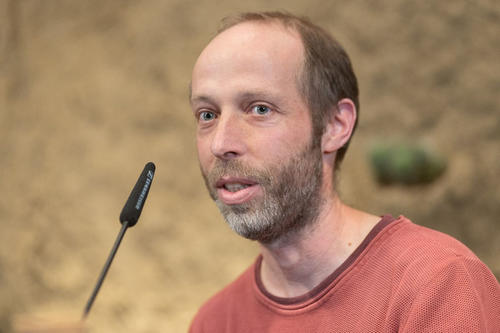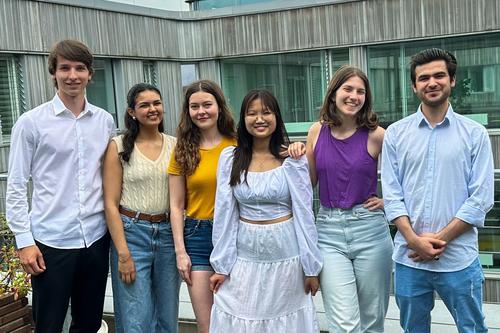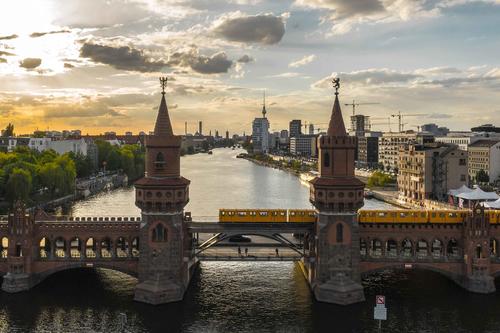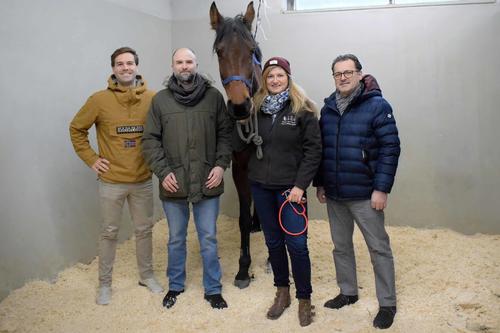Looking Back at 2024 at Freie Universität Berlin
The year 2024 was a turbulent year in many regions of the world – and at Freie Universität as well. The Hamas terrorist attack on Israel on October 7, 2023, and the war in the Middle East continued to reverberate around the globe and certainly affected students, staff, and faculty at Freie Universität Berlin. In January 2024 two scholars and specialists on the Middle East, Meron Mendel and Sabha-Nur Cheem, held a lecture in a standing-room only auditorium on the university campus in Dahlem. It was the first in an event series against antisemitism, racism, and anti-Islamic radicalism organized by the university. Both the lecture and subsequent discussion provided differentiated views of the conflict and stimulated thought for respectful dialogue. A website was later created to focus the debates and discussions on the Middle East.
In addition to addressing the topic of the Middle East through various lectures, events, and dialogues, the year at Freie Universität was also marked by protests and violent acts on campus. These acts included several occupations as well as an attack on the building housing the Office of the President and the executive staff members themselves. In addition, a protest camp on campus grounds lasted for several weeks, and there were other demonstrations and disruptive actions. Most of these activities were covered by the Freedom of Assembly Act and remained peaceful, but others were only ended after the police intervened.
Holocaust survivor Margot Friedländer never tires of speaking to people about her experiences. Now 103 years old, her main message remains, “Be human!” and is shockingly timely. In the spring of 2024, Friedländer, ever style conscious, was photographed by Vogue magazine on the occasion of her birthday. The photo shoot took place in Freie Universität Berlin’s Botanic Garden. Back in 2022 Freie Universität Berlin recognized Friedländer’s achievements with an honorary doctorate.
Preserving Memories, Learning Together, Staying in Touch
How can memories of the past be preserved for the future? In the master’s degree program on Public History, organized in cooperation between Freie Universität Berlin and the Leibniz Centre for Contemporary History in Potsdam, students learn about the culture of remembrance and gain the education they need for potential future work with memorial sites, museums, and exhibitions. In 2024, for example, they published a newspaper for an exhibition (in German) about the uprising in the Warsaw ghetto in 1944 (“Auf beiden Seiten der Barrikade. Fotografie und Kriegsberichterstattung im Warschauer Aufstand 1944”). They also created an audioguide (in German) for a cemetery in the Berlin district of Friedrichshain devoted to casualties of the attempted German revolution in March 1848 (Friedhof der Märzgefallenen), and curated an exhibit based on a substantial collection of historical postcards collected by Peter Plewka: “Aus der Zeit – Eine Kreuzberger Postkartensammlung 1890 – 1945” (in German).
New Beginnings, Success Stories, Reorientation
The year 2024 was proclaimed the Year of Biodiversity at Freie Universität Berlin, which inspired numerous events, lectures, projects, and seminars on the topic. The Thementag Lehre, a day devoted to specific aspects of teaching and education, chose as its motto “Teaching and Learning about Sustainability in the Year of Biodiversity.” The university’s new biodiversity strategy supplements its sustainability strategy that was already in place. It combines biodiversity as an object of scientific study with nature conservation research and outlines how the university plans and manages its own green spaces and buildings.
Science and research require public dialogue. Science is not possible without the free exchange of arguments and counterarguments. What happens, however, if a critical public debate takes a turn for the worse and scientists are defamed or even threatened because of their work? A panel discussion (in German) focused on hostile attitudes toward science and science communicators and offered support for those affected by such hostility (“Wissenschaftskommunikation schützen: Was tun bei Hatespeech und digitaler Gewalt?”).
In February the university published a new Statute for Safeguarding Good Research Practice. It is binding for all the members of Freie Universität Berlin. In November a Week of Good Research Practice was held for the second time.
According to the DFG Funding Atlas, Freie Universität Berlin is one of the five top universities in Germany for research. Indeed, the university is home to many outstanding researchers. For example, when the tech giant Google had a problem with quantum computers, they called the university in Dahlem. Freie Universität researchers were also involved in the discovery of the burial chamber of an ancient Egyptian princess that caused a stir in Egypt. And a scientist from the Department of Biology contributed to new findings on what makes fruit flies ecstatic during courtship, which attracted a great deal of media attention.
The Collaborative Research Center “Episteme in Motion: Transfer of Knowledge from the Ancient World to the Early Modern Period” examined processes of knowledge change in European and in non-European pre-modern cultures. After twelve years of funding by the German Research Foundation (DFG), the project drew to its end on June 30, 2024.
International
Freie Universität has won numerous awards due to its strong international connections. At a ceremony in Brussels, the university received the 2024 Beacon Award for its dedication to protecting academic freedom and its continuous support for scholars at risk from crisis-ridden regions around the globe. For example, the Sudanese veterinarian Khalid Mohammedsalih is conducting research at Freie Universität’s Department of Veterinary Medicine with a scholarship from the Scholar Rescue Fund.
The Alumni Office, along with the university’s international liaison offices, hosted receptions for alumni of Freie Universität Berlin in four corners of the world: São Paulo (Brazil), Mexico City (Mexico), Taipeh (Taiwan), and Bogotá (Columbia).
In 2024 Freie Universität Berlin successfully applied for 1.66 million euros of funding for student and staff exchanges with partner universities worldwide. This represents the highest funding commitment made by the German Academic Exchange Service (DAAD) for German universities as part of the Erasmus+ KA171 program. At Freie Universität exchanges with universities in the Middle East and Africa, in particular, will benefit from this funding.
Anniversaries and Festivities
The Otto Suhr Institute of Political Science, established in 1949, celebrated seventy-five years of educating students and providing expertise at Freie Universität Berlin. It is a highly regarded institution for research on democracy, critical engagement, and political analysis.
The “Degenerate Art” Research Center at the Art History Department of Freie Universität, which maintains the “degenerate art” database, celebrated twenty years of research. It also introduces students to the important field of provenance research.
1974 ...1999 ... 2024 – everyone who earned their doctorate at Freie Universität twenty-five or fifty years ago was invited to attend a celebration in honor of their silver or golden anniversary of earning their doctorate.
People
Freie Universität Berlin is part of the Berlin University Alliance (BUA), which also contributes to outstanding scholarship and networking. This year the president of Freie Universität Berlin, Professor Günter M. Ziegler, is the spokesperson for the BUA.
The Diversity and Antidiscrimination Office took up its work this year. Its staff members are working to achieve greater equity within the university as well as to counteract discriminatory structures and mechanisms.
Jaco Cilliers heads the United Nations Development Programme (UNDP) in Ukraine. In June he visited Berlin as a delegate at the Third Ukraine Recovery Conference. At Freie Universität he reported on how the UNDP continues to function, even as the war continues.
Gretchen Dutschke is an alumna of Freie Universität Berlin and an important figure in contemporary history. She was the wife and comrade-in-arms of Rudi Dutschke, an icon of the German student revolt of 1968. Gretchen Dutschke studied theology at Freie Universität. She accepted an invitation to speak at the event series “Von Alumni für Alumni.”
Edzard Reuter died at the age of 96. A lawyer, he was one of the first students to enroll at Freie Universität when it was founded in 1948. His father, Ernst Reuter, was a mayor in West Berlin at the time of the university’s founding, and in 1950 he became the Governing Mayor of West Berlin. Ernst Reuter provided significant support for the founding of a new university in the western part of the city, thus enabling the founding of Freie Universität Berlin.
Paul Dösch was on the German national men’s hockey team when they won the European indoor hockey championship. Dösch studies media and communication studies at Freie Universität and is one of 226 students at the university receiving a Deutschlandstipendium during the 2023/2024 academic year. This is the highest number of Deutschlandstipendium scholarship recipients at Freie Universität to date.
Big Leaps in Research Innovation
This year several researchers at Freie Universität have taken their exciting innovations down the path to develop them into everyday products: an app against schizophrenia, live vaccines against intestinal parasites, healthy feed for edible insects – to name a few. These projects have received support from various sources that help researchers transfer their findings to the market, such as Berlin’s Science & Start-Ups or the GO-BIO initial funding program through Germany’s Federal Ministry of Education and Research.
One project stood out: Daniel Lauster’s idea for an antiviral protective shield to be sprayed into a person’s nose was funded with more than 4.5 million euros by the German Federal Agency for Disruptive Innovation (SPRIN-D). In October the resulting spin-off MucosaTec GmbH also won the final round of the SPRIN-D competition in the category “Broad Spectrum Antivirals.”

